Eight Bells: George Stewart “Stovy” Brown
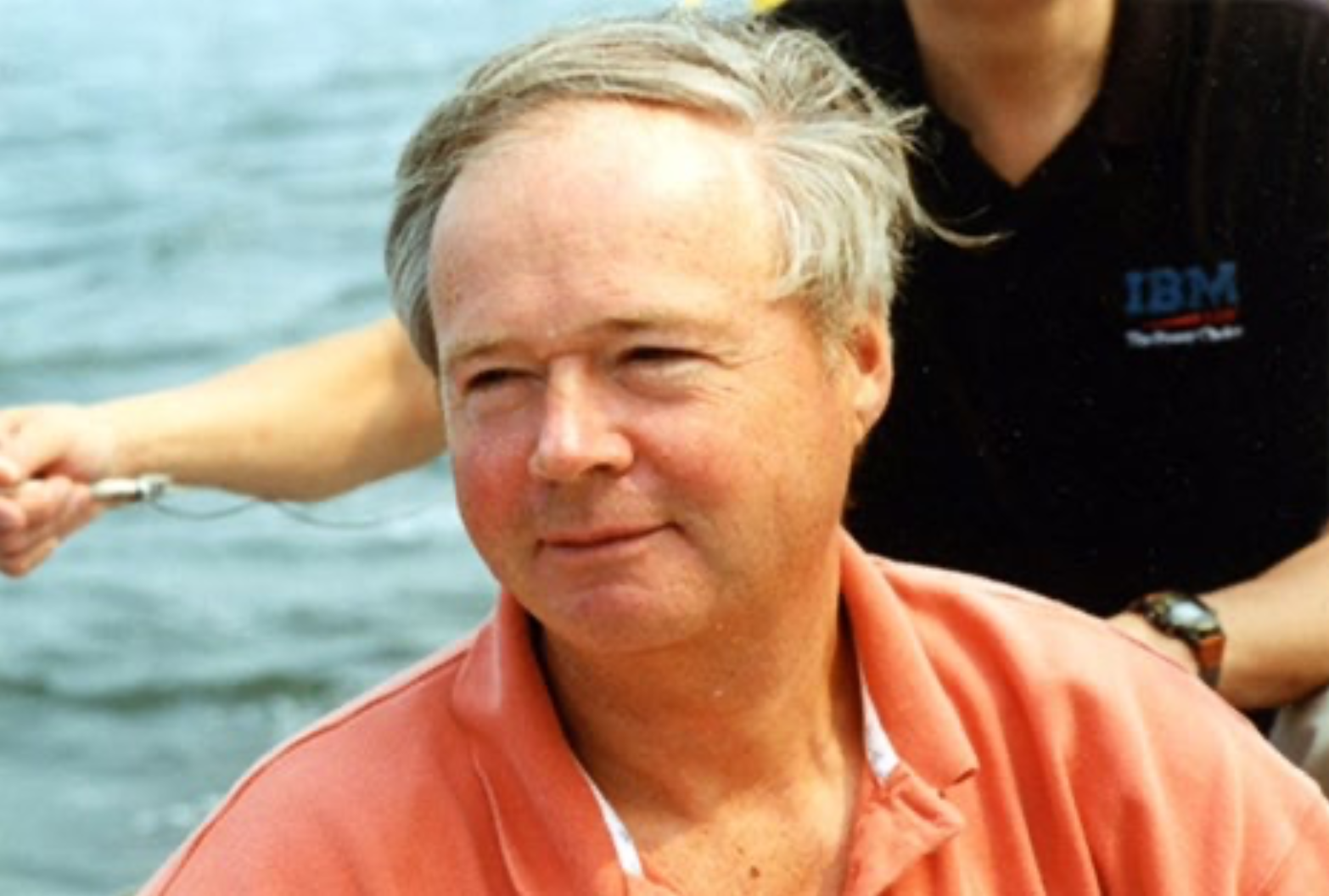

Severn Sailing Association lost one of its greatest early contributors with the passing of Stovy Brown April 19th. Stovy dedicated his life to the support and growth of multiple generations of junior sailors, beginning with roots he established at SSA as a teenager. He was an accomplished dinghy, keelboat, and offshore sailor, a tremendous coach and teacher, and an enduring force for sharing the love of our sport with others.
His greatest gifts to SSA were junior sailing and the Snipe fleet.
Stovy was the leader of our first generation of junior sailors and served as the head instructor of the junior program from 1960 to 1962. During his tenure the junior program flourished. He not only enhanced the skills of the juniors, – he built a community of young people who loved sailing and loved being together. The love was mutual as Stovy once stated in a note to the Board of Governors, thanking them, and especially his colleagues, for making his job the labor of love that every sailing experience should be. That’s the motto he lived by, and that countless SSA instructors have carried forward in the years since.
Stuart Walker’s daughter,Susan Rotblat-Walker, summed up why Stovy was such a great mentor: “His enthusiasm for the sport of sailing was infectious and his leadership was amazing. Stovy always made me feel that I was as accomplished a sailor as the boys I raced and that I could win races and regattas. Stovy made SSA the preeminent club for juniors who wanted to excel and to have loads of fun doing so.”
But perhaps his greatest innovation for SSA—and to junior sailing overall—was the development of the instruction format (standardized format; skills-based graduated instruction model for junior programs) that was ultimately adopted by clubs across the Chesapeake Bay and up and down the East Coast. He also introduced the concept of training his students to become instructors by establishing one of the first ever formal instructor training courses—a concept well ahead of its time. Always forward looking, Stovy’s decisions ensured that the instruction model he developed would be carried on for years.
Stovy was an accomplished Snipe sailor. His family was affiliated with Baltimore Yacht Club and Snipe Fleet 219. However, his tenure as the head instructor at SSA resulted in him bringing the Baltimore Snipe fleet to SSA, which in turn became SSA’s fifth sanctioned fleet. This was the dawning of the golden age of Snipes and the birth of Fleet 532. His Snipe resume included the 1957 Snipe Junior National Champion, a regatta he won in the 18-year-old Snipe, Alibi, #4002. He won multiple Maryland Championship and Colonial Cup titles, including first place at the inaugural Snipe Colonial Cup in 1966. He was a masterful tactician and a wizard in the light, shifty breeze that is common on the Chesapeake. His crew included Anne Wright, with whom he would enjoy 51 years of marriage.
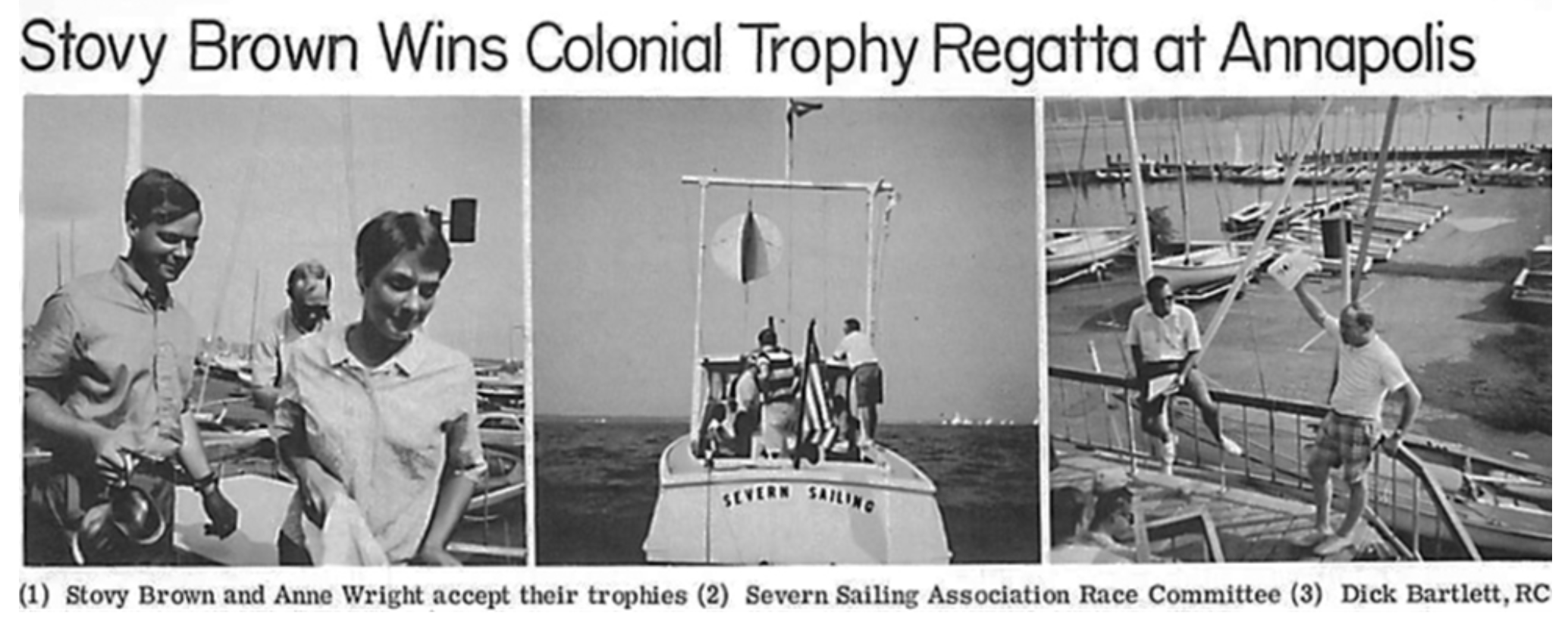
Stovy’s involvement with SSA carried on as an adult where he served on the SSA Board of Governors for at least seven years, in various capacities, between 1965 and 1974, many of those years spent as the chairman of the Junior Committee. He also served as SSA’s vice commodore.
He was Stuart Walker’s crew in what Stuart considered his greatest victory, becoming the first Americans to win the prestigious Prince of Wales Cup in England. A graduate of Yale, Stovy led the sailing program from club status to varsity sport and was tactician on Yale’s victorious 1963 McMillan Cup team.
He ultimately transitioned over to keelboats, campaigning a series of highly successful boats on the Chesapeake over the course of 45 years, including the Triton Traveler, a Pearson 30 Varsity Letter, an Evelyn 32 Zingarella, and later a Bristol 35.5 named Age of Reason. All his boats served as a platform for bringing a love of yacht racing to countless junior sailors.
His contributions to the sport of sailing continued expanding, far and wide, after his years at SSA. In 1999, he established the Southern Maryland Sailing Foundation to provide capital equipment for organized junior instruction, high school racing, and other sail training programs. He also created Sailing Center Chesapeake, which is the face of the Foundation, performing the day-to-day operations of teaching, coaching, and racing using the assets provided by the Foundation. His accomplishments were extensive and his impact on the sport will endure for years.
I first met Stovy because I was his paperboy. I was sailing 420s in SSA’s junior sailing program at the time, but I jumped at the chance to sail big boats with him, and did so for many years. He taught me countless tips and tricks for getting around a race course the fastest, but in retrospect his greatest gift was teaching me many of the little things that are necessary to succeed in life, the intangibles like attention to detail, preparation, and perseverance, and for that I am forever grateful.
Farewell, Stovy!
—Ted Morgan, SSA commodore, 2005-2006
Leave a reply
Your email address will not be published. Your comment will be revised by the site if needed.


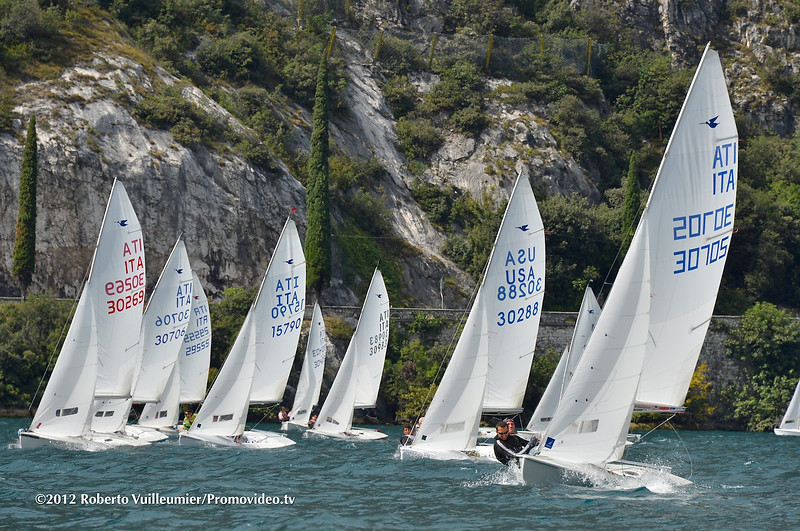
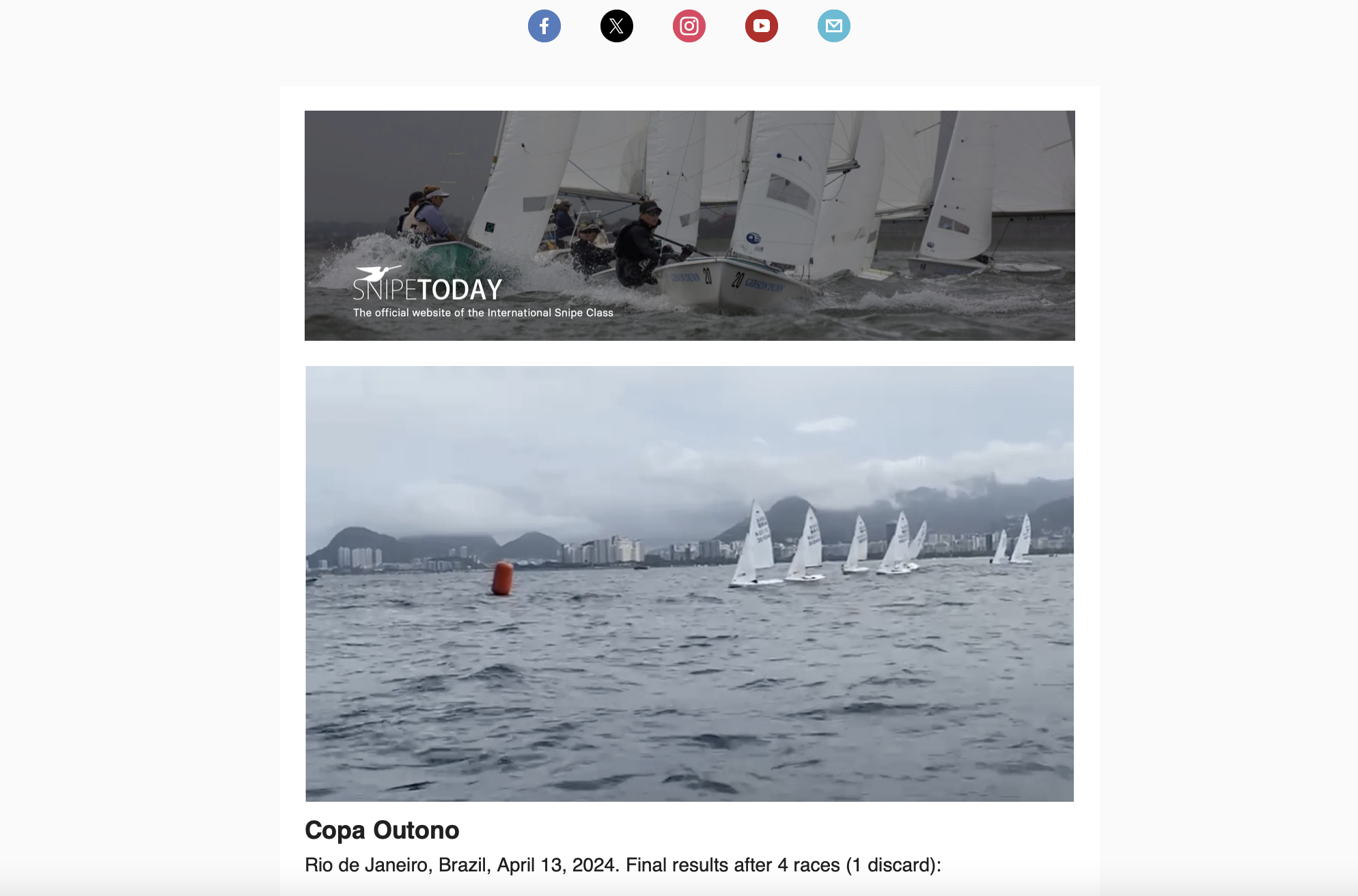
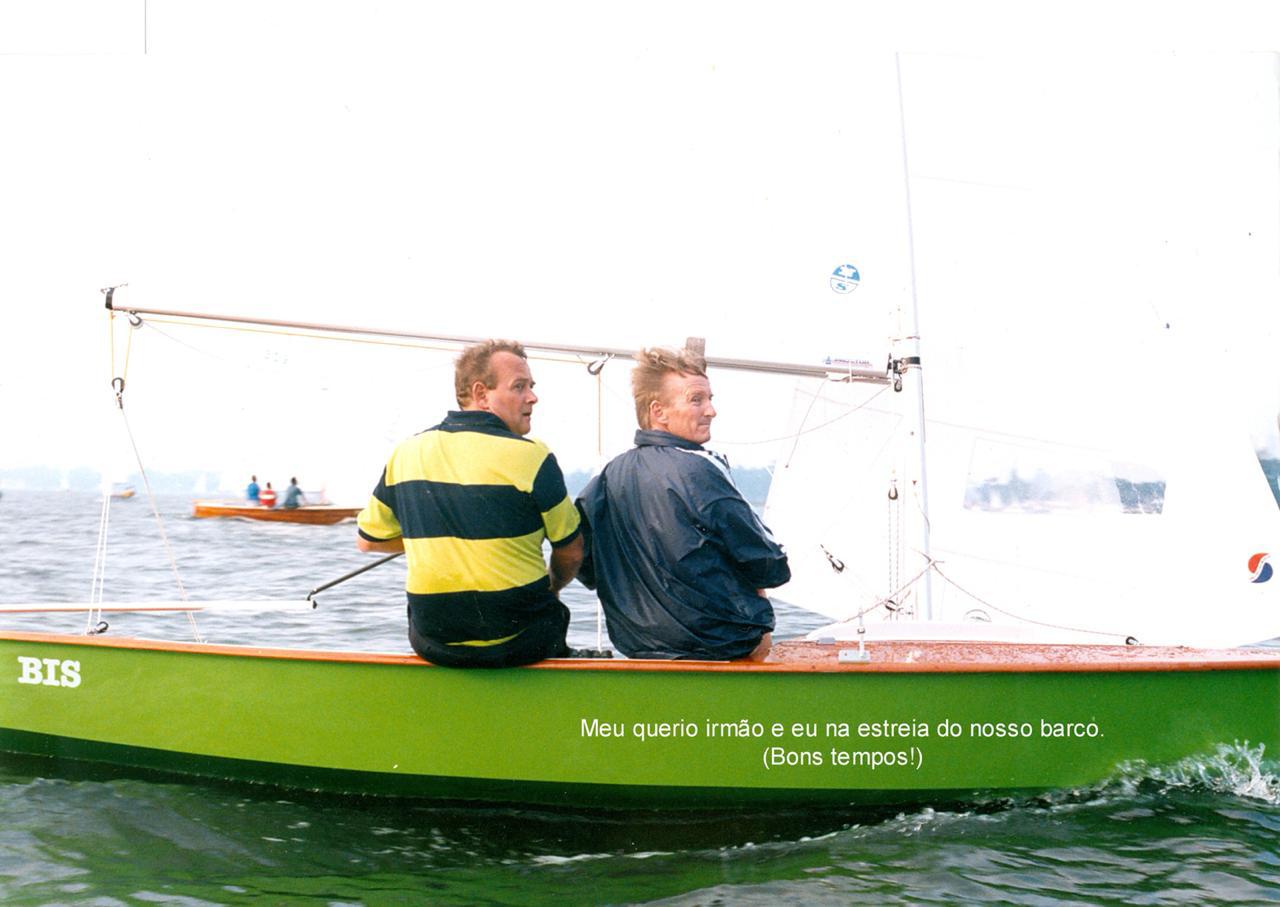
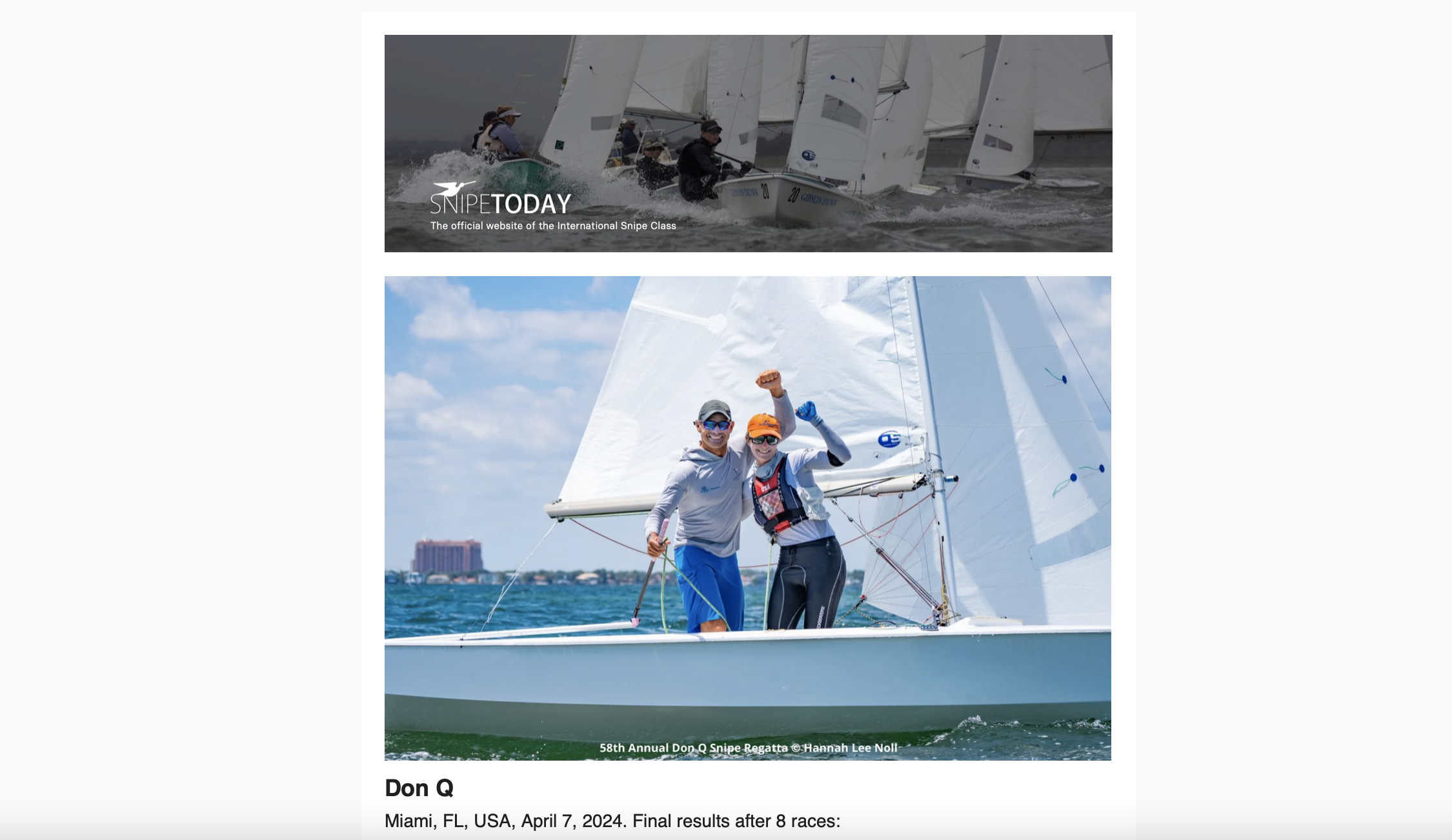
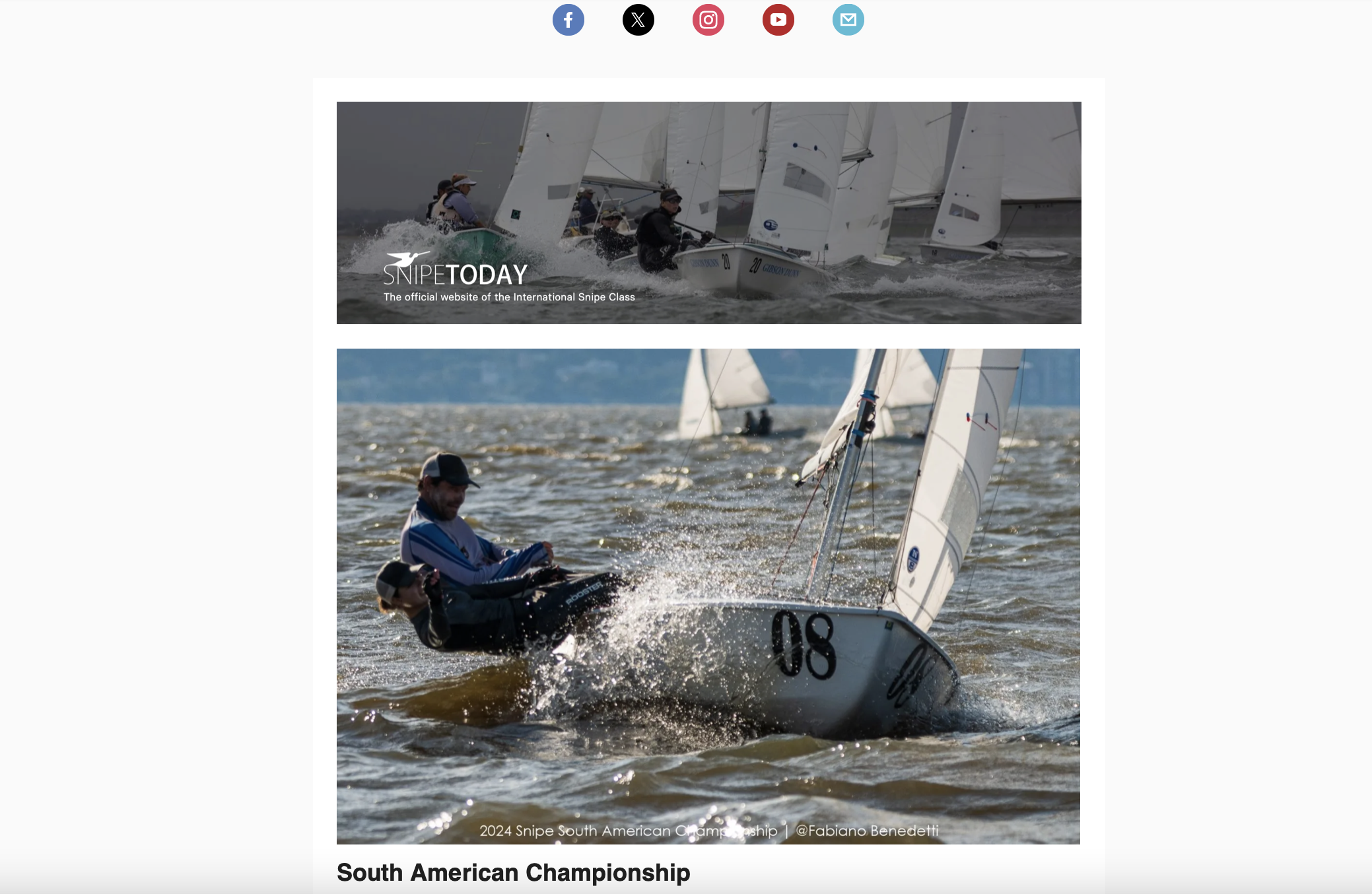
0 comments